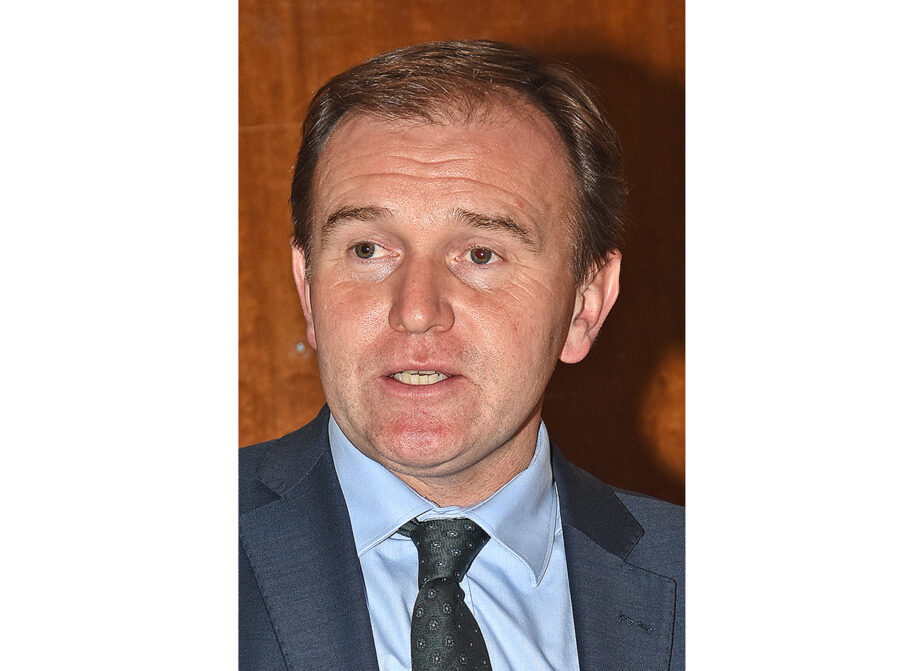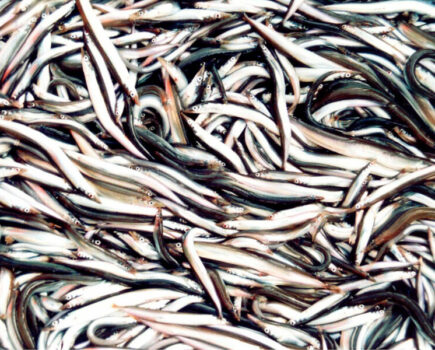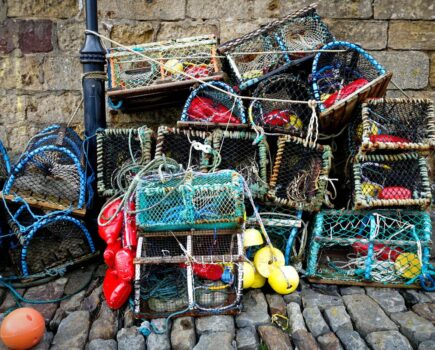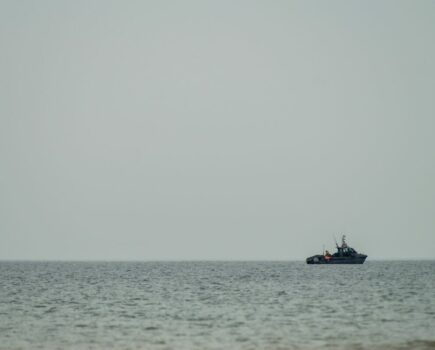Minister under Brexit pressure from Commons committee
The UK must take back total control of its waters and fisheries resources from day one of Brexit under the terms of the UN Law of the Sea (UNCLOS), and not start negotiating with the EU on the basis of existing relative stability quota shares, reports Tim Oliver
This was the message to UK fisheries minister George Eustice when he appeared before the Commons Environment, Fisheries and Rural Affairs Committee (EFRA) and was grilled on how fisheries will be managed after Brexit.
The minister was also asked for reassurances that fisheries negotiations with the EU will be carried out on the same basis as those with Norway and Faroe and that they will be kept separate from trade talks.
Cornwall MP Sheryll Murray questioned why the Chequers white paper on Brexit said the government will ‘seek to move from relative stability towards a scientific method for informing future TACs’, when it would be an independent coastal state with complete control over its 200-mile/median line EEZ, like Norway, Iceland and Faroe.
“Why have you started from basically using the crumbs that we get from the share-out under the CFP?” she asked the minister.
“Why have you not started with the UK under UNCLOS and an internationally recognised treaty that entitles us to 100% of the fish in our waters?” On that basis, only any fish surplus to the UK fleet’s requirements would be made available to vessels from other coastal states, by negotiation.
“Why have you started from what appears to me, and I’m sure would appear to most fishermen, to be the wrong end?” she asked the minister.
George Eustice said he did not accept that analysis. The government would be negotiating quota shares with the EU on the basis of zonal attachment (basically, where fish live), which was set out in Annexe 3 of the fisheries white paper.
But Sheryll Murray continued to press the minister. Quoting the Chequers white paper as saying the government would seek to move from relative stability towards the more scientific basis of zonal attachment ‘through negotiation’, she said, “Minister, we don’t need to negotiate with anybody because there’s an international treaty that recognises that the UK will have control over the fish in its own 200-mile to median line limit (UNCLOS).
“Other countries like Norway, Iceland and the Faroes have started from that. Why have we started differently? Is there something else that we hope to gain by giving the EU this negotiation and starting with the CFP as the starting point rather than somewhere else?
“Could you please categorically state that that isn’t the starting point and that once the white paper consultation is over you will look to rebalance this and you will look to remove that from the bill?”
The minister replied: “Our starting point is that we’re an independent coastal state controlling access to our EEZ and that we are going to have a new methodology of allocation based on zonal attachment. There is the question of how do we move from the system we’ve got, to that position.”
He said the starting point was relative stability ‘because that’s where we will be in December 2020. But in many ways, our objective is the most important thing, and that’s zonal attachment’.
EFRA chairman Neil Parish asked the minister how long it will take before UK fishermen are able to finally catch the expected extra quota.
George Eustice said, “We are working on that now. In the annual exchanges, we exchange access to waters in exchange for an inward quota to our fleet. We are looking at what methodology we should use to get those inward transfers so that we see year-on-year gains for our fleet.” It might be faster for some species than others.
Sheryll Murray said that was a continuation of the CFP and that annual exchanges take place now under the CFP regime. “Why are you so determined to stick to the CFP management regime, be it relative stability, or the annual exchanges?” she asked the minister.
“They will be OUR fish. Can I please implore you to forget the European Union and its completely foolish policy and its management system and start to understand that we will be governed by the UN Convention on the Law of the Sea (UNCLOS) (Articles 61, 62, 63) and start working from there and not from this completely foolish policy that has decimated the British fishing industry?”
The minister said annual exchanges were not an EU process. They take place with Norway and Faroe and are ‘a common feature of international fisheries negotiations’.
Neil Parish said Sheryll Murray had pressed her points because fishermen ‘feel they haven’t had their fair share over the years and they are just terrified when we leave the EU they’re not going to get it back, and you probably realise the strength of that feeling’.
He accepted there would have to be ‘a process’ of taking control and taking back quota but asked for an assurance that fish would not be ‘negotiated away’. He asked the minister: “Are you confident we will get our fish back? There will be agreements, I suspect, with other nations but it will be down to our rules and whether we allow that to happen. Is that the case?”
The minister said, “Yes, absolutely, and that’s what we set out in the white paper.”
He said the fisheries bill should be published towards the end of this year – unless there was no deal and thus no implementation period when it would have to be brought forward.
‘No link between trade and access’
Asked whether the separation of fisheries and trade negotiations was ‘a red line’ for the government, the minister said: “Negotiations on fisheries access and management are one strand, and trade is an entirely separate one – we don’t see the two as connected.
“The white paper is a government paper signed off by all departments, and we are clear that the two are separate sets of negotiations.”
He said the UK has a big trade deficit with the EU, which wants access to our market for their food and other exports.
Asked what the EU’s response has been so far to the UK position of not linking access to markets, and fisheries not being used as a negotiating tool to achieve other objectives, George Eustice said there had been no detailed discussion on fisheries with the EU to date.
“All they say is simply that they want to link a trade deal to access to fisheries. We’ve been explicit that we disagree in the white paper,” he said.
He pointed out that ultimately the final agreement will have to go through Cabinet and parliament and that ‘in the final analysis we all recognise that Cabinet won’t agree anything it isn’t confident it will get through parliament’.
Baie de Seine/Brittany scallop disappointment as French say ‘Non’
The chairman of the Scallop Industry Consultation Group and lead UK negotiator for the UK-France king scallop accord negotiations, Jim Portus, is disappointed to announce that French fishermen have decided not to agree to the UK/France annual closure of the Eastern Channel, Baie de Seine and Brittany netting boxes for 2018.
Since the Channel scallop wars, a mutually beneficial accord has been agreed each year since 2012, whereby the UK over-15m scalloping fleet has complied with a complete closure of key fishing areas to scallop dredging. This includes the entirety of Area 7d for two months each year from 1 August, in addition to the Baie de Seine and Brittany fixed-gear boxes for the further month of October. In exchange, the UK received Western Waters scallop fishing effort (kWdays).
Jim Portus said: “This accord has been a valuable bilateral deal that has been good for both sides, and most likely for the scallop stocks too. The UK scallop fleet has been able to fish in other parts of Area 7 while the 7d scallops recover and grow.
“This year the French industry is insisting that the UK under-5m scallop fleet is included in the deal, from which that small fleet gains nothing.
“To put this matter into perspective, the UK under-15m fleet caught around 800t of scallops in Baie de Seine in 2017. On the other hand, the French industry took over 16,000t of scallops from the same fishery.
“The UK under-15s are responsible for less than 5% of the uptake, yet they are being held to ransom in a deal that does not benefit them. Talks have broken down this year because the French industry simply won’t budge on this issue.”
In a bid to work more collaboratively with the French towards long-term co-management of shared scallop stocks, DEFRA is planning a full consultation with the entire UK scallop industry about a French ‘Joint Management Proposal for the Baie de Seine scallop fishery’, that would apply to all vessels of all nations, but that consultation has not yet been launched, and there is no prospect of a decision affecting the 2018 Baie de Seine scallop season.
Jim Portus added, “Colleagues in the UK scallop industry have expressed disappointment at the short-sighted decision made by the French industry. The future management of this important stock will need a far greater level of co-operation between our countries than the French have shown during these negotiations. Nevertheless, this year, due to the decision of the French industry, it seems that there will be no accord. Therefore, UK vessels of any size will be able to fish for scallop in the Eastern Channel, Baie de Seine and Brittany netting boxes for the remainder of 2018.”
Irish ‘voisinage’ agreement questioned
George Eustice was asked for an update on the reciprocal fishing rights ‘voisinage’ agreement between the Republic of Ireland and Northern Ireland, which Ireland has suspended. Northern Ireland vessels are banned from fishing within Ireland’s six-mile limit, but Irish vessels can still fish inside Northern Ireland territorial waters.
Asked if the government will stop Irish vessels fishing in Northern Ireland waters if no agreement can be reached, the minister said the UK government was committed to the principles of the voisinage agreement. The Irish government, after saying it no longer recognised the longstanding convention, said it would bring forward legislation to rectify the situation. But it was proving difficult to get the legislation through the Irish parliament because of the balance of the parties there.
“If it becomes clear the Irish government is not going to legislate, we will have to suspend our side of the agreement as well,” he told the committee.
Image: UK fisheries minister George Eustice.








